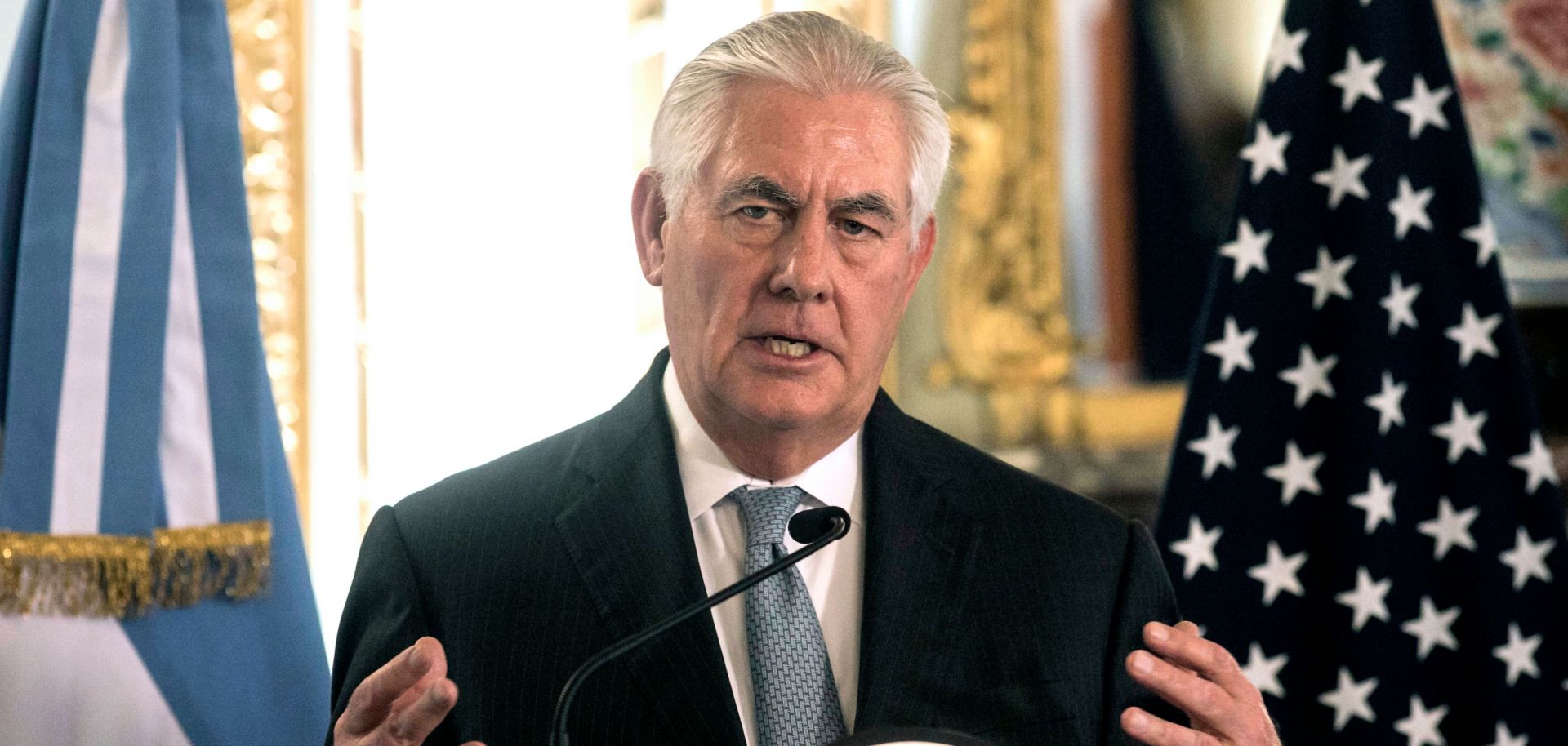REFLECTIONS
U.S. Sanctions Won't Drive Out Venezuela's Government
Feb 7, 2018 | 23:52 GMT

U.S. Secretary of State Rex Tillerson, during a Feb. 4 news conference in Buenos Aires, Argentina. Tillerson floated the possibility of restricting the sale of Venezuelan oil abroad.
(ALBERTO RAGGIO/AFP/Getty Images)
Highlights
- The United States will debate whether to implement heavier sanctions on Venezuela to prevent its government from holding a controversial presidential election on April 30.
- Washington hopes to bring Caracas to the negotiating table to persuade the government either to hold free elections or accept the departure of President Nicolas Maduro.
- However, the Venezuelan government elite fears being sidelined from politics or extradited to the United States and most likely will resist U.S. pressure.
Subscribe Now
SubscribeAlready have an account?
